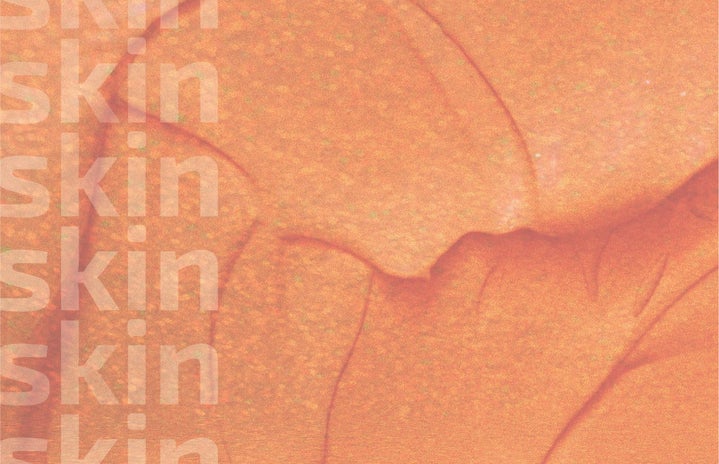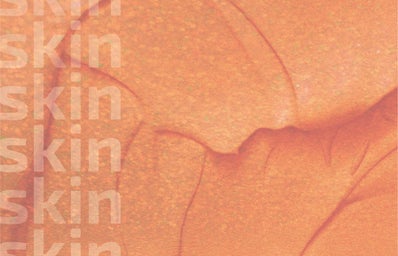Whether you are new to the game or already a skincare junkie like me, figuring out what to use on your skin is an everlasting question. We are always learning new and innovative ways to combat our own personal skin concerns; However, it never hurts to pause for a second and go back to the basics.
One of the first questions you’ll be asked when you step into any skincare facility will be “What kind of skin do you have?” While this seems like an easy answer, let me walk you through the steps on how to find out what your true skin type is, why it matters, and what you do once you figure it out. Bear with me- this may take awhile so get yourself a snack and let’s get learning.
First and foremost why does it matter what skin type we have? The simple answer is that everyone has their own needs and goals for their skin. Unfortunately, the skincare industry sometimes makes it nearly impossible to differentiate what will be good or detrimental to your skin. You may be using a highly recommended product, but if it is wrong for your skin type you will never see the progress you are looking for. Marketing and packaging can easily set us off track on what we truly need, so knowing exactly what skin type you have and what treatments/ingredients you need to be looking for can save you a lot of time and money.
The next question you may have is what is a skin type? Generally speaking, skin type refers to the hydration levels of your face. All of us need moisture and hydration to keep our skin healthy and glowing, however, our bodies all work in different ways, meaning all of us have different levels of hydration. When that hydration is not present, this is when you will notice certain skin issues such as fine lines, wrinkles, and dark spots.
Now- How do we find out our skin type? I promise it’s less complicated than you might think.
Step 1: Start in the shower with a gentle cleanser, wash your face for about 30 seconds, and rinse.
Step 2: When you get out of the shower wait 1 hour. This means no moisturizers, serums, or oils, let your skin rest as it is for the entire hour.
Step 3: After your hour is up, sit down in front of your mirror and start to examine your skin.
- OILY- If you see a strong glow or reflective shine on your face (almost like you slapped highlighter all over your skin) this points directly to you having an oily skin type. Meaning the sebaceous glands within you skin are producing too much sebum causing clogged pores, excess shine, and potentially acne.
- DRY- If you notice a very tight feeling on your skin, as if it will crack if you smile too big, or see any flakiness or lines this means you have dry skin. This is most likely pointing to the fact that your skin produces less sebum than normal skin which causes a lack of lipids which your skin needs to retain sufficient moisture.
- COMBINATION- If you notice that some spots of your face are shiny and glistening, while others are tight and flaky, this means you have combination skin. Additionally, if you notice enlarged pores this is most likely due to the excess sebum being produced under the skin and simultaneously being blocked by any dead skin cells on the surface of your skin.
- NORMAL- Lastly, if you notice no tightness, stripped feeling, or any excessive shine, this means you are BLESSED with normal skin. Your skin’s pH levels will tend to stay well balanced, along with regular sebum production.
Once you know what your skin type is, the next step is to truly address your skincare needs. Whether you have oily, dry, combination, or normal skin, it’s important to know how to find the right products for you. My number one recommendation here is research. The hard truth is, skincare is a complicated science and no one product will work for every person. As much as I wish I could give a direct answer to everyone’s skincare needs, this is the time to consult the advice of any skincare professional or reliable online source to ensure you are giving your skin the best chance possible.
One of my last words of wisdom I will leave you with is the term “turn and learn”. There are countless products out there claiming to fix your skin like magic, and unfortunately, the majority of those claims can be disproven the moment you turn the bottle around and learn about what is truly packed in your products. Learning what active ingredients to look for, what filler products and fragrances to avoid, and understanding the basic science behind the formulation of your skincare can sound daunting but is truly the best gift that you can give to your skin.
Lastly, please remember that each and every one of you is beautiful and stunning no matter your skin type or skin concerns. Your skincare routine should be a time of self-care and appreciation for all that you are doing for yourself. While skincare is a great way to treat physical concerns, it is an even better way to treat yourself and take a moment just for you every day.
p.s. simply starting to get curious about what is truly good and healthy for your skin is the perfect place to start
<3 Emma
Edited by Annie Stibora




